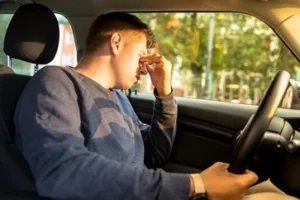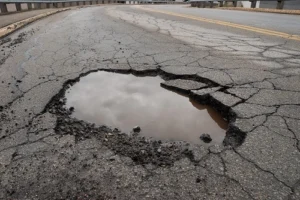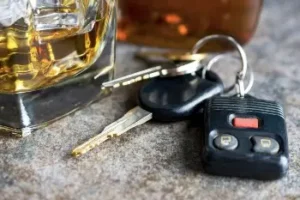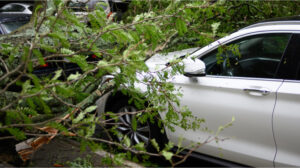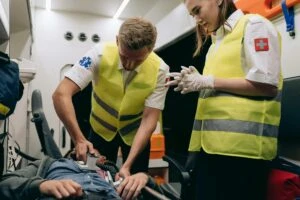
You are the plaintiff when you are injured in an accident and try to recover money by filing a personal injury lawsuit against the person who caused it. The person or persons you accuse of causing your injuries are the defendants. As the plaintiff, the burden of proving the defendant was negligent and you were injured falls on you and your personal injury attorney.
The burden of proof in a civil case is by the preponderance, meaning a greater quantity, of the evidence. In a personal injury action, most of the evidence must support your claim.
Consider a scenario where you have a heart attack in public, and a stranger attempts to revive you using an AED. If the defibrillator does not work, but paramedics make it to you minutes later with the proper equipment, and you survive with some damage to your heart, what recourse do you have? When it comes to AED malfunction and personal injury, here is what you need to prove as a plaintiff.
What Is an AED?
The automated external defibrillator (AED) is an electronic medical device that sends electric shocks into the chest people having heart attacks to reset their when heartbeats to a regular rhythm. When an AED is combined with CPR, the chances of survival increase. In the U.S., emergency medical services (EMS) treat about 383,000 people suffering from sudden cardiac arrest (SCA) each year, and it is the number one cause of death.

Injured on Someone Else’s Property?
Know Your RightsOur expert premises liability lawyers will help you hold negligent property owners accountable.
Get a Free Case Evaluation
504-500-1111Negligence and Product Liability
Plaintiffs have two ways to win a personal injury case when an AED malfunctions. Negligence is proven by giving adequate evidence of the following points:
- A person had a duty to be as reasonable and careful as a responsible person would,
- They did not fulfill this duty
- Their actions caused the plaintiff’s injuries
Product liability is based on a design or manufacturing flaw in a product that does not perform as promised. The maker could be liable for injuries even when they are not negligent, but when they know or should have known about the defect and did not warn consumers or recall the product, negligence is also an issue.
Defendants in an AED Personal Injury Action
A plaintiff who had a heart attack and could not be helped because an AED malfunctioned might consider suing the AED manufacturer or designer. The first person who tried to use the AED may not be liable under the Good Samaritan Act, which protects those trying to help a stranger from being sued when there are injuries. However, if the stranger disabled the AED because they did not understand the directions, they could be liable, possibly absolving the manufacturer.
With a minor change in the scenario, the first person on the scene might be liable if they purposely tried to harm the plaintiff or had a heightened duty to them. For instance, if a parent is accompanying a minor child who collapses with an irregular heart rhythm, the parent has a duty to help the child and could be liable for refusing, while a perfect stranger has no duty to act.
The paramedics would not be liable because the elements of negligence cannot be proved. They acted reasonably and did not cause injuries. The personal injury attorneys at Scott Vicknair could review your story and evidence to determine how to proceed, and against which defendants.
Harmed by a Dangerous Defective Product?
We’re Here for YouOur experienced product liability attorneys will fight to secure the compensation you deserve for your injuries.
Schedule a Free Consultation
504-500-1111Prove an AED Malfunction With Help From a Personal Injury Attorney
Our attorneys could help you gather evidence such as surveillance, cell phone video, photos, and medical reports to build a case for compensation when you are injured after an AED malfunctions. Identified defendants may be liable when the evidence shows it is more likely than not that they were negligent.
We can call witnesses, even expert ones if necessary. When you are injured after an AED malfunction, we can explain what you need to prove as a plaintiff and how we can recover compensation for your pain. Contact us today.
